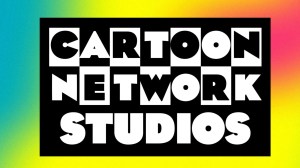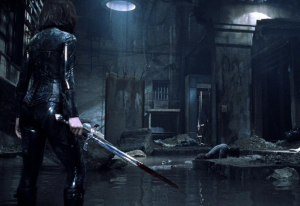If you’ve ever spent hours on a quiet island in Animal Crossing: New Horizons, stepping onto your first planet in Petit Planet will feel instantly familiar. From the moment I arrived, I found myself planting, gathering, and decorating in a rhythm that was soothing yet rewarding. HoYoverse has taken the comforting life-sim formula of New Horizons and expanded it across multiple planets, giving a sense of scale and variety without ever feeling overwhelming or confusing.
Videos by ComicBook.com
Thanks to HoYoverse, I got the opportunity to play a closed test of Petit Planet, and after several hours hands-on, it’s clear that the game is built squarely for fans of life-sim experiences like Animal Crossing. While the familiarity is comforting, it also leaves the game feeling a bit predictable and unsurprising.
Petit Planet’s Progression Is Surprisingly Addictive, Even If You’ve Played Animal Crossing
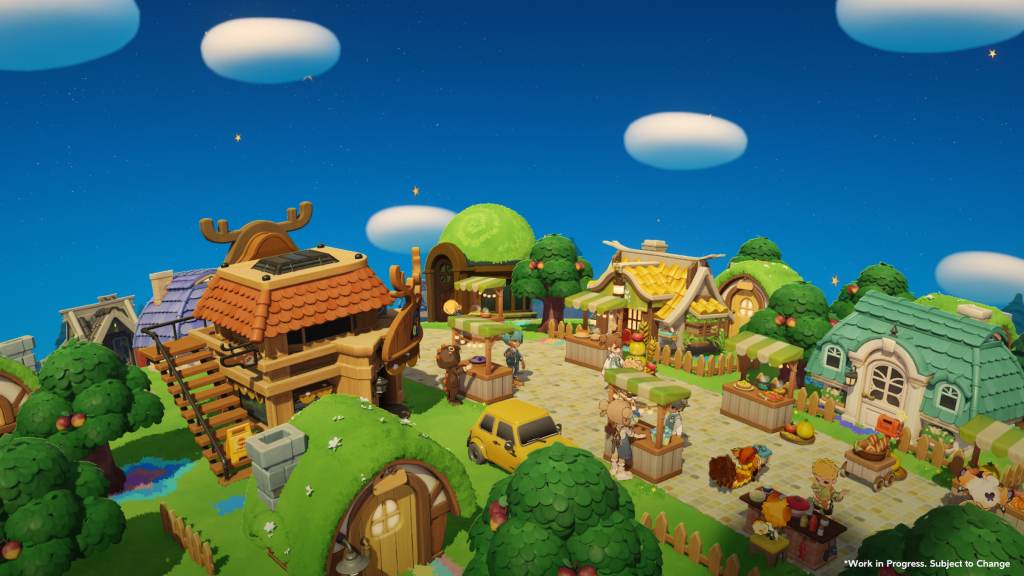
Character creation at the start is pretty basic. You pick a few facial features, a hairstyle, and a skin tone, and that’s enough to get going. But this simplicity makes sense because there is a huge range of cosmetic options available to earn through gameplay. From clothing items to facial features to hairstyles, your character can be gradually customized to match your style, giving a lot of depth for players who enjoy personalization through progression.
Following character creation and after a lore-heavy cutscene, the game quickly establishes a progression loop that any Animal Crossing veteran will recognize. I started with a barren planet and minimal tools. Almost immediately, every task, whether planting flora, collecting resources, or crafting a structure, felt meaningful because it contributed directly to my planet’s growth, which is a central aspect of progression. Completing objectives unlocked new resources, which in turn allowed for more buildings, decorations, and flora to appear. Each small accomplishment opened the door to the next. Seeing these changes take place made me want to keep going, even if it was a little slow at the beginning, thanks to the tutorials the game forced upon me.
Movement and interactions are smooth as silk. Controls respond naturally, and animations enhance the experience without drawing attention to themselves. Even something as simple as adjusting the camera while fishing made me pause to appreciate the polish. I noticed little touches, like plants shifting slightly when I walked by or critters wandering near my structures, that made my actions feel noticed, even if only by the game itself. These details give your planet a sense of continuity. It makes it feel like a space you can shape at your own pace.
Despite its cozy look and feel, the game has more structure than a typical sandbox life sim. Daily tasks, quests, and occasional time-gated objectives create a rhythm to play sessions. I ran into one quest that required waiting a full day to progress, which was frustrating because I wanted to see the next step right away. Still, the combination of creative loops and structured goals works well. It gives a sense of purpose without ever feeling oppressive.
Voyages Make the Universe Feel More Connected Than You Would Expect
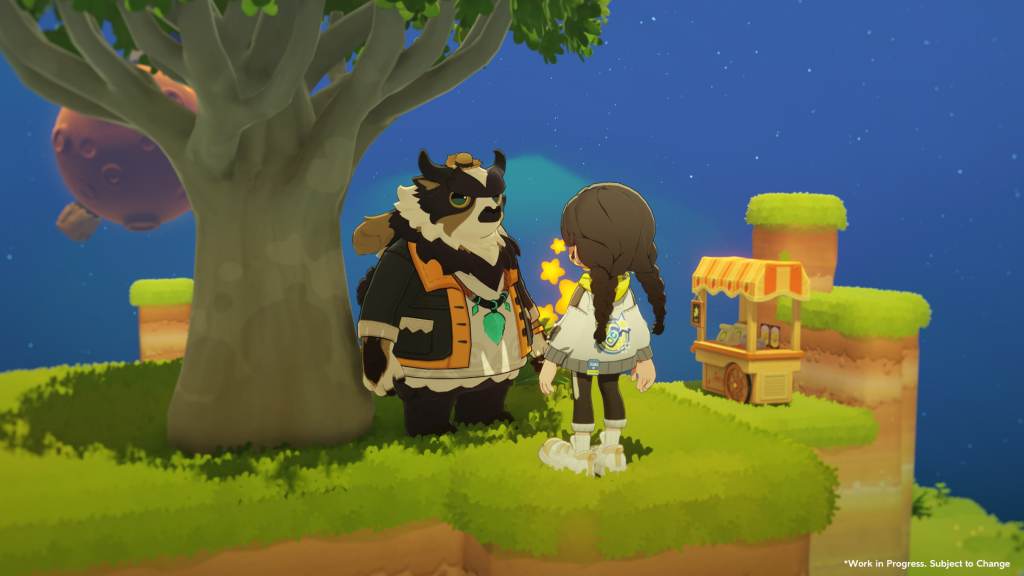
Not every planet is the same, and the game encourages you to explore beyond your own world for resources you can’t otherwise get access to. Using the Starsea Voyages system, I traveled to neighboring mini-planets to find materials and recipes that could not be found on my own. These trips were practical but also fun. I even lingered on one mini-planet just to see what I could discover, which ended up being a hidden chest with a recipe inside. Occasionally, I encountered other characters on these voyages who offered bonuses to my home planet.
Like in Animal Crossing, you can invite these Neighbors, or other NPCs characters, to live on your planet. More often than not, they brought useful benefits, like unlocking new recipes or helping with resource gathering, which adds depth without ever feeling forced. One particularly interesting aspect was the ability to directly chat with Neighbors. I was able to ask them questions and have them respond with full AI responses. Even though this has been done before, seeing it available here was a bit of a surprise, and it even allowed me to have a question I had answered through its system. Honestly, it was a pretty cool experience.
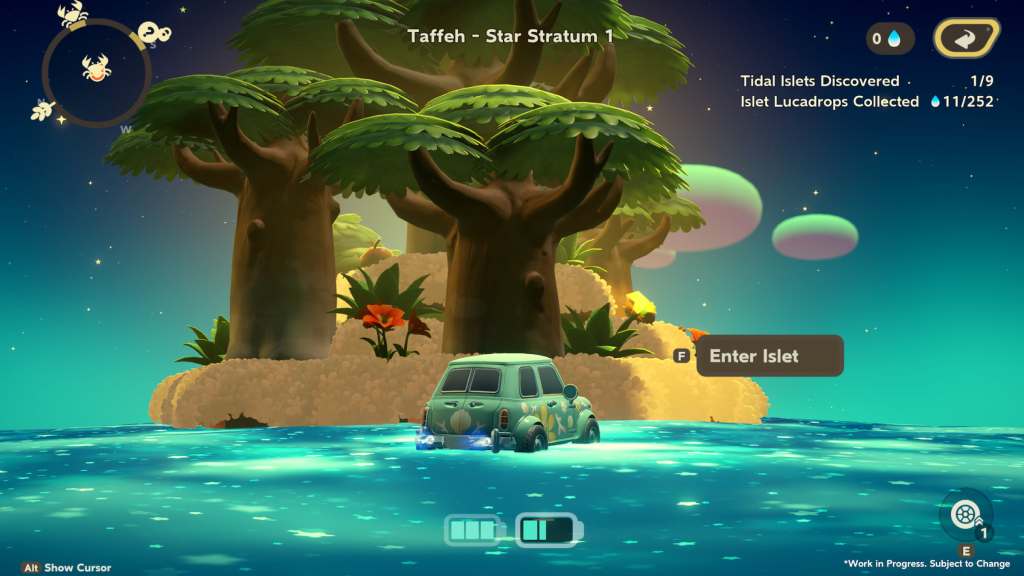
While I didn’t encounter other players directly throughout the test, I could easily imagine visiting friends’ planets and swapping decorations becoming a major part of the experience. There was a central hub available called the Grand Bazaar, which is a location where you can mingle with other players through conversation and mini-games. However, the few times I went there during the test, it was deserted, so I never got to experience this aspect. Still, it’s clear community and connectivity are a big part of the game, and the live-service nature hints at significant possibilities as updates roll out.
On the topic of socialability, monetization is worth a mention. As mentioned earlier, Petit Planet has a huge range of cosmetic options. While no paid gacha was available during the closed beta, gacha mechanics did exist in boxes purchased with in-game currency at the local market. I rolled the dice a few times and scored a space suit that looked and moved differently from anything else I owned. It even left purple footprints behind as I walked, and it was clear by the color coating that this was five-star clothing I acquired through sheer luck. Whether these items will eventually require real money is not clear, though it would not be surprising. For now, everything I found could be earned entirely through gameplay.
Decorating and Exploring Makes Petit Planet Cozy But It Is Not Too Strange
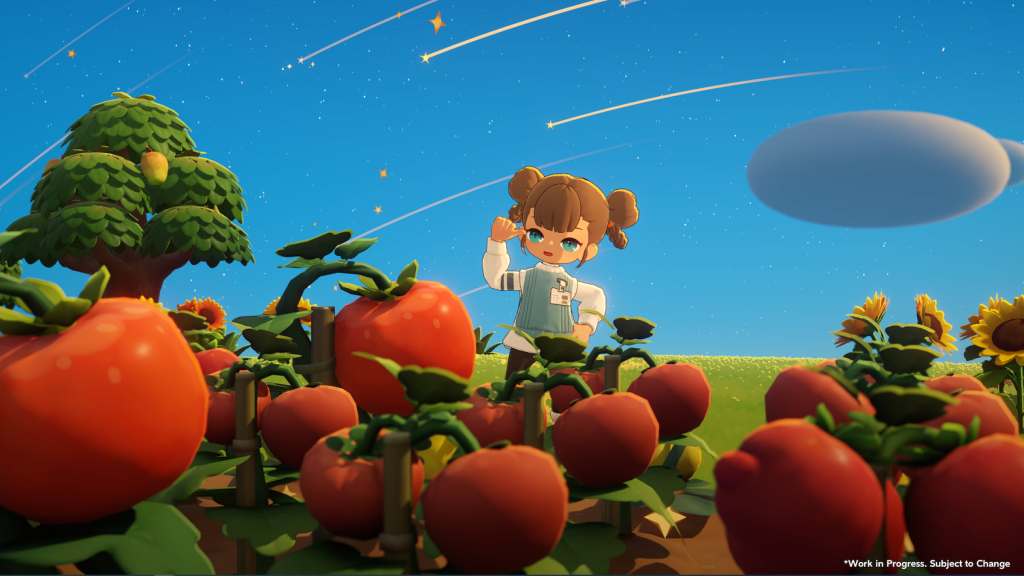
Visually, the game is soft and full of small details that reward attention without overwhelming the senses. Each planet has its own layouts, quirks, and aesthetic touches, from terrain shapes to interactive events like fishing a big fish out of the center of a mini-waterfall. On my own turf, I spent a few minutes rearranging my own buildings and decorations to see what I could come up with. The process was simple and straightforward. I was able to easily place, rotate, and relocate items in my house until I was pleased with the final result. It opens up new possibilities and gives a sense of ownership over your planet.
That said, I do have a couple of gripes I’d like to mention. First, Petit Planet feels a little boring at the start, mainly because it is so strikingly similar to Animal Crossing. While the familiarity is comforting, it can also make the experience feel safe and predictable at times. Geniune surprises, despite the space-based setting, were fairly minimal during my first couple of hours. The bright side is that, as a live-service game, future updates and content could shake things up and introduce surprises early on and later.
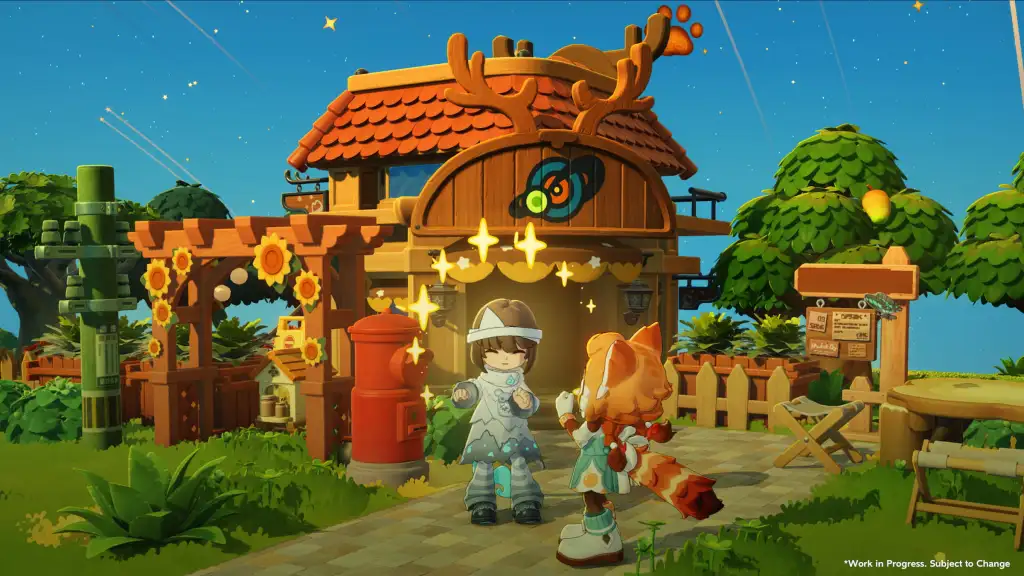
Second, the time-gating annoyed me immediately. As I mentioned earlier, a single mission forced me to wait nearly a full day to complete it, interrupting the otherwise smooth flow of progression I was having. I hope such mechanics remain rare, as there is nothing worse than a showstopper designed intentionally to prevent progress. I was also a bit disappointed by the lack of genuinely alien elements. Despite being a space-faring cozy experience, nothing I encountered felt particularly unusual or strange. That could change as gameplay continues, but that is what I have seen so far.
Even with these minor issues, Petit Planet succeeds at balancing the familiar with the fresh. It is cozy, structured, and endlessly expandable, giving players the same rhythms of Animal Crossing while adding planetary-scale exploration, plenty of social systems, and live-service ambitions. The game delivers small, satisfying discoveries that are immediately recognizable to fans of life sims, and even in this early preview, it is clear that Petit Planet is offering a space-faring twist on a beloved classic that could keep players engaged for a long time.
What do you think? Leave a comment below and join the conversation now in the ComicBook Forum!






